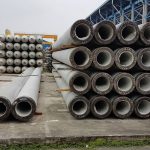Rice is a strategic commodity in Indonesia, valued by the government, distributors, and exporters. However, one major problem that frequently occurs and is highly detrimental to the food industry is the decline in rice quality when stored for too long. This issue is not only a technical issue of rice storage but also a financial risk that can directly impact profits, reputation, and business sustainability.
When rice quality declines, color changes, texture deteriorates, aroma becomes stale, and broken grains increase, producers and distributors can experience significant losses. This is especially true if large stocks are rejected by buyers, become contaminated, or require re-sorting. All of this incurs additional costs, sometimes considerable.
This is where insurance protection for rice storage becomes crucial. Insurance not only covers the warehouse building but also the rice stock, drying machines, ventilation systems, and potential losses due to operational disruptions.
Want to ensure your business is safe from rice storage risks? Consult with an L&G Insurance Broker for a FREE consultation via WhatsApp.08118507773or emailhalo@lngrisk.co.id
And it’s important to emphasize: always purchase insurance through an official broker registered with the OJK, not a regular agent or directly with the insurance company. Why? Because insurance policies have numerous technical details and exclusions. Even a small mistake in choosing one could result in your large claim being rejected.
With official brokers such asL&G Insurance Broker, you will receive full support starting from policy selection, risk analysis, to claims support until it is actually paid.
Why Does Rice Degrade When Stored Too Long?
Rice deterioration is a natural process, but it can be accelerated by less-than-ideal storage conditions. Here are some of the most common causes:
- Oxidation and Degeneration of Rice Grains
Prolonged exposure to oxygen causes rice to change color and aroma.
- Unstable Humidity
High humidity triggers mold, while low humidity makes rice more brittle and more likely to break.
- Pest attacks (lice, moths, caterpillars)
Pests can develop quickly if the warehouse is not maintained.
- Microbial Contamination
Mushrooms likeaspergillus And penicillium very commonly found in warehouses with poor sanitation and ventilation.
- Fluctuating Temperature Changes
Extreme temperature changes cause rice to absorb or release water vapor, which triggers quality damage.
What is the Impact on Business?
- Selling prices dropped drastically
- Stock rejected by local and foreign buyers
- Need to re-sort (additional cost required)
- Supplier reputation ruined
- Potential loss of contract
If the stock reaches hundreds of tons, the losses will not only be in the millions but could be billions of rupiah.
Rice Storage Problems That Often Occur in Warehouses
Many warehouse owners believe they have good facilities, but the reality is that rice storage is a highly sensitive process. Some common problems include:
- Unstable Temperature and Humidity
If one tool is damaged, the quality of the rice can be damaged in a matter of days.
- Poor Ventilation
Moist air settles and triggers mold.
- Machine damage (blower, dryer, dehumidifier)
If one machine breaks down, the whole batch stock could be affected.
- Roof Leaks or Flooding
Major risks that are often not covered by basic policies.
- Human Error
Wrong arrangement of sacks, mixing of old and new rice, poor sanitation.
All these risks lead to one thing, namely the decline in rice quality and significant losses to the business.
Financial Risks Due to Declining Rice Quality
If the quality of rice decreases, the impact will not only be on goods, but also:
- Direct loss
The selling price can drop by 40–70%.
- Indirect losses
- Buyer files a claim
- Item returned
- There is a contract penalty
- Loss of business reputation
Long-term contracts can be cancelled, especially for government supplies or export buyers.
- Additional costs
- Fumigation
- Re-drying
- Repacking
- Sorting
A risk of this magnitude should not be borne alone, it should be transferred to an insurance company.
Types of Insurance That Must Be Owned When Storing Rice
This is the most important part. If you have a rice warehousing or distribution business, here are the mandatory insurance types you must have:
- Property All Risks (PAR) or Industrial All Risks (IAR)
Protect buildings, equipment and facilities from:
- fire
- flood
- lightning
- Hurricane
- electrical damage
- sudden building damage
Many people think this is enough. But it’s not. This is just basic protection.
- Stock Deterioration Insurance
This is the most important thing to consider when dealing with declining rice quality. Protecting stocks from damage caused by:
- damage to the cooling or ventilation system
- humidity is too high
- mold
- contamination due to machine failure
- a decrease in quality that causes the selling value to decrease
For the food industry, this policy is the biggest savior.
- Machinery Breakdown Insurance
To protect:
- dryer
- blower
- temperature controller
- dehumidifier
- ventilation machine
If just one machine breaks down, the quality decline can be massive.
- Business Interruption Insurance
Protects you from losses when the warehouse is not operational.
- Liability Insurance (Legal Responsibility)
If the buyer sues because the quality of the rice does not match the contract.
Own a rice warehouse? Don’t let a small risk turn into a big loss. Get a FREE risk analysis and policy recommendation from L&G Insurance Broker.
Why Can’t You Buy Insurance Through an Agent or Directly from an Insurance Company?
Many warehouse owners purchase insurance through agents or directly from insurance companies because they consider it “faster.” However…
- Agent only offers 1 insurance company
Limited product choices, limited benefits, many risks not covered.
- Direct purchase = no party to defend you in case of a claim
If the claim is large, insurance companies often look for loopholes to deny it. Who’s on your side? Nobody.
- OJK Official Insurance Brokers such as L&G = Independent & on your side
Brokers do:
- risk analysis
- choose the best policy from many insurance companies
- premium negotiation
- check policy wording
- accompany claims until they are actually paid
- regular policy monitoring
This is the reason why large businesses, factories, state-owned enterprises, and even banks are required to use insurance brokers.
Example of Rice Quality Decline (Real Case in Industry)
Case 1 – Damaged Ventilation, Moldy Rice (Loss of Rp. 2 Billion)
The blower system was out of order for three days, causing hundreds of tons of rice to turn black and moldy. Fortunately, the warehouse owner had Stock Deterioration Insurance, and all claims were paid.
Case 2 – Floods Damage Thousands of Sacks of Rice (Loss of Rp. 4 Billion)
The warehouse does not have a PAR policy that covers flooding. All losses are borne solely by the owner.
Small differences in policies can make or break a business.
Recommended Insurance Packages for Rice Storage Businesses
Basic Package
- Fire Insurance
- Burglary Insurance
Operational Package (Standard)
- Property All Risks
- Machinery Breakdown Insurance
Full Protection Package (L&G Recommended)
- Industrial All Risks
- Stock Deterioration
- Machinery Breakdown
- Business Interruption
- Flood & Natural Disaster Cover
- Liability Insurance
With complete protection, you no longer need to worry about the risk of declining rice quality.
Declining Rice Quality Is a Preventable Risk
Deteriorating rice quality is not just a technical warehouse issue, but a significant business risk that could cost companies billions of rupiah. Rice storage requires proper facilities, strict standard operating procedures (SOPs), and most importantly, proper insurance coverage.
Insurance such as PAR/IAR, Stock Deterioration, Machinery Breakdown, and Business Interruption are real solutions to protect your business from losses.
But remember, don’t buy insurance carelessly. Only buy through an OJK-approved insurance broker to receive comprehensive support, from risk analysis to claims payment.
Don’t wait until the quality of rice decreases and your stock turns into a loss!
FREE Consultation with L&G Insurance Broker via WA 08118507773 or email halo@lngrisk.co.id














